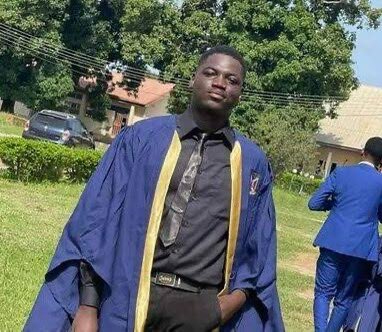- Enoch Oyedibu
- Ajayi Crowther University
- 0 Comments
- 992 Views
But irrespective of this, people tend to move ahead, fixing perceived defaulters in their early grave. So, what must be done? Should the jungle justice continue?
At the first instance of hearing the tragic loss of the 200 level male student of Ajayi Crowther University, Oyo; what came to my mind was the historic and tragical tale of the four University of Port Harcourt students who were wrongly lynched for a crime they did not commit. Surprisingly, it was also a crime of theft.
The wound of seeing and hearing four young guys in their youthful exuberance collapsed into their eternal ruins, and most of it all, unjustly, still creaks an indelible mark of horror when remembered. Though those who perpetrated the act were later sentenced to death, the four killed and the crack it left in families, loved ones and the nation’s hearts remains unrepairable.
Stealing is evil. No one justifies that. But as much as stealing is evil, so lashing out justice over someone allegedly believed, caught or discovered to have stolen an item, too. The law says such people must be judged and found guilty by the court before anyone could even call them a criminal. Aside, when what is stolen has been recovered, violence has been inflicted in the form of beating, what brings about painfully sojourning the soul to an eternal rest?
The Aluu Four story involved students of the Department of Geology in the University of Port Harcourt. Their names were; Ugonna Obuzor, Lloyd Toku, Chiadika Biringa, and Tekena Elkanah. They were all lynched after being accused of theft in Aluu, a community in Obio/Akpor local government area, Rivers State, Nigeria on 5 October 2012. Linda Ikeji, the foremost Nigerian blogger currently seeking to dance into the Nollywood industry with an adaptation of the historical fact of the ALUU 4 story, in 2023 she produced Dark October to that effect.
One of the points raised from the movie, Dark October, was still clearly epilogued at the end of the movie, calling people to stay cautioned in launching attacks on perceived criminals and thereby, letting loose jungle justice.
Heartily battered enough, the campaign for jungle justice never got to Ajayi Crowther University. It even did not enter the ears of its students at all. Last week, it was widely reported that a 200 level male student stole a phone. He was caught. The phone was retrieved according to witnesses. But the students who caught him decided to sack the alleged thief (now late) of life. They believed the best revenge was beating him to death. A video circulating all around the social media shows how the suspect was beaten, shaven and stripped naked. They firmly stood against the alleged phone thief, launching him an unidentified barrage of blows. Whips, belts, and cane all pounce on him. At the end, the alleged thief breathes his last. He died.
Activists and commentators have constantly argued that one of the activities that have led to the proliferation of jungle justice in Nigeria is as a result of the toothlessness of the police and the entire criminal justice system in the country. People believe the justice system often favours the rich, the privileged or the errand boys of the influential people and frequently twerk justice to their interests. So, people believed whenever they catch an alleged criminal, performing justice at the instance is the only solution. While this is old, it is not advisable. Society frowns at it as well as the Law. But irrespective of this, people tend to move ahead, fixing perceived defaulters in their early grave. So, what must be done? Should the jungle justice continue?
Read Also: Why Burna Boy Not Ready to Have Kids?











